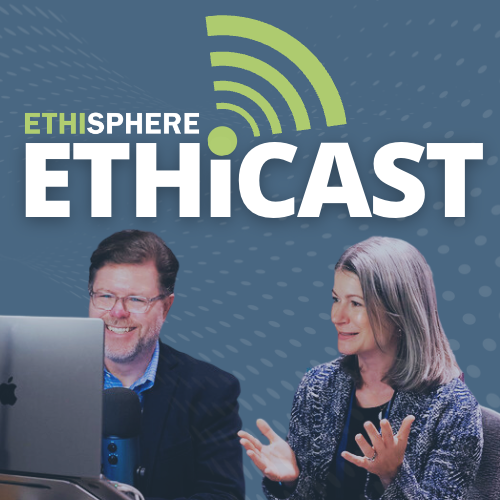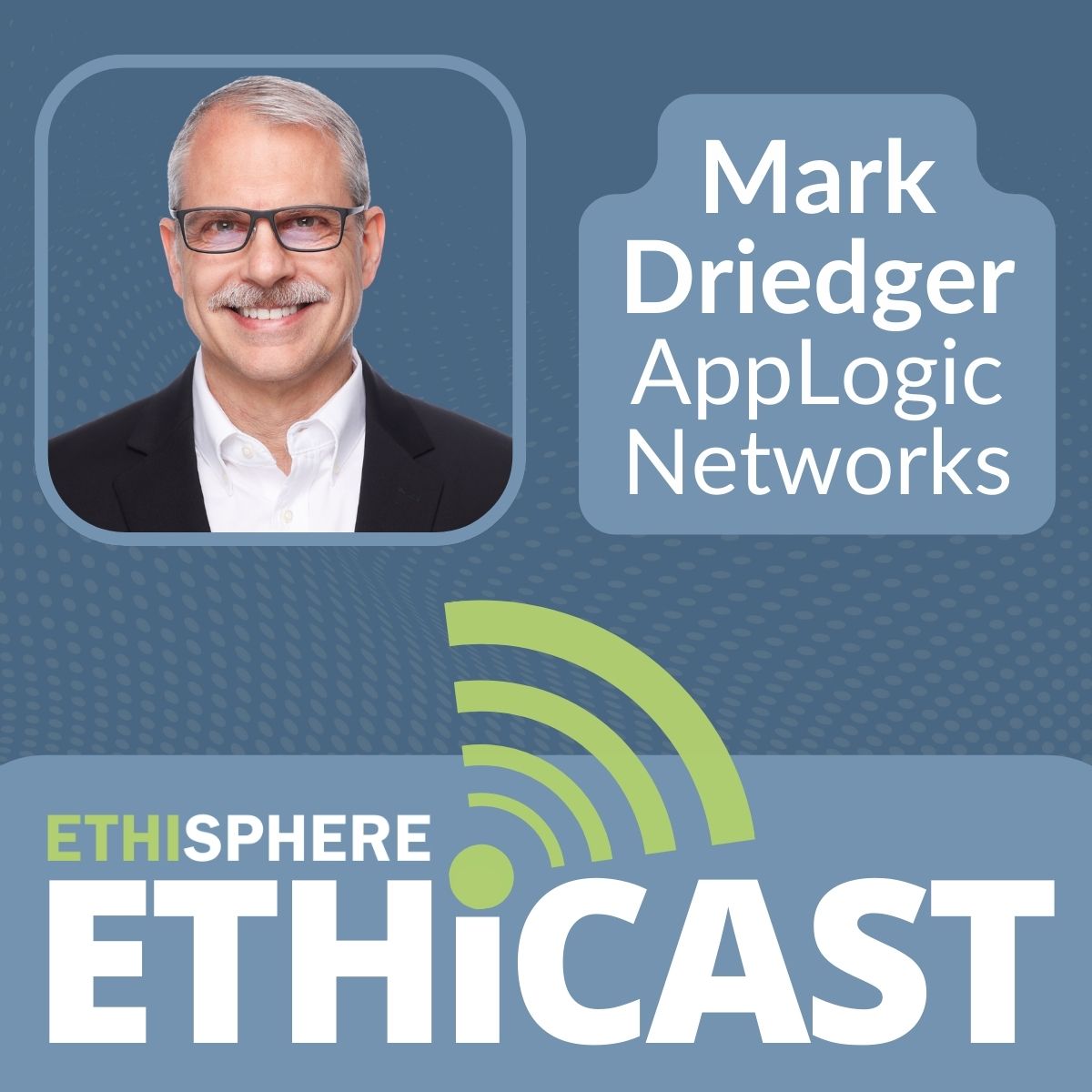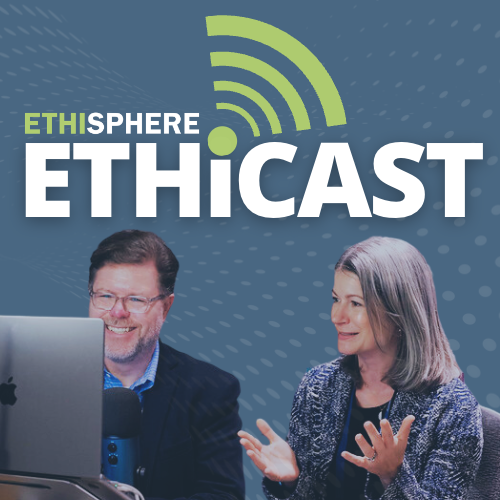[00:00:00] Speaker A: Hi everyone. You've got questions and we've got answers. Welcome to another Bella Asks episode of the Ethicast.
The Business Ethics Leadership alliance, or bela, is a global ethics and compliance community that provides exclusive access to helpful data, best benchmarking events and other resources to advance your ethics and compliance program. And with bella's concierge service, members can submit any question regarding ethics and compliance and our internal experts will provide an answer, plus helpful resources with more information.
And while we invite everyone watching and listening to join bella, we also know that there's no competition in compliance, which is why we're using this program to thematically respond to high level questions from the Bella community to the benefit of ENC teams as everywhere.
And joining us once again to answer those questions is Bella chair Erica Salmon Burn. Erica, it is so good to see you again. We have an antitrust question for you today. The question reads, what does a good antitrust or anti competition prevention program look like? And I asked that question with special interest because I have read more than a few anti monopoly statements myself over the course of my career. So Erica, what does a good antitrust or anti competition prevention program look like?
[00:01:19] Speaker B: So Bill, it all starts with your risks. Because every organization is going to have a slightly different profile of antitrust or anti competition related risk.
Do you have a monopoly risk? Is it a bid rigging risk? Is it a collusion, price fixing risk? Is it a supplier blackballing risk? Right. There's, there's different types of antitrust or anti competition behavior risk that you might be facing as an organization. And so the first thing to ask yourself is what kind of risks am I facing?
Do I have a lot of my salespeople going to trade shows where they could potentially at the bar, get to know somebody in another, you know, that works at another organization and decide to allocate territories? That's an antitrust risk. Right. So you know, those are the kinds of things you have to ask yourself. What are the places where I could potentially bump up against some of these risk areas? And there have been over the course of the last couple of years some interesting cases that have come out in, in places where you might not have thought that you had an antitrust risk.
Directors sitting on similar boards, for example. Right. We saw a lot of that a couple years ago with directors who were sitting on more than one board of an organization in the same industry.
That's an antitrust risk.
Monopolization of a public good is another one that's going through the court or is in the news Rather right now I don't know if can we do across Bella asks at the cast reacts moment here Bill, because there's some news being made right now with a bipartisan inquiry that is being led by Senator Elizabeth Warren of Massachusetts into whether or not there was monopolization of organizations that make and repair fire trucks. So there's been a big roll up of a lot of smaller fire truck manufacturers, fire truck parts manufacturers by a couple of private equity firms by it has become increasingly difficult to get those parts. It has become increasingly difficult to get your hands on fire trucks. And there have been some examples, you know most recently and sort of most prominently the Los Angeles fires where a piece of the response challenge with that was we didn't have fire trucks right. There's there's one of the local municipality that's quoted in the article about the opening of the inquiry and this particular town council person said look are going to be able to build the fire station, put the roof on it, train the firefighters and all of that will be done before we can get our hands on a truck. Like that's how delayed the fire truck manufacturing is. And there's a lot of inquiries into whether or not the reason for that is an over concentration of ownership of the the means of making fire trucks by one organization, also known as a monopoly. Right. So it's really things thinking very strategically about where does my risk lie, what do I need to be concerned about what are going to be some of those markers and then from there you can start to design what your program is going to look like.
Once you have those factors, a lot of the same things that play into any other type of risk specific program are going to come into play. So what is my written statement going to look like? What is my training program going to look like? How am I going to remind employees and at what point in time am I going to remind them of what's expected and not expected? How are am I going to be monitoring for Indisha that there are issues, you know those kinds of questions are the things that you follow on with next. But it all starts with understanding what your antitrust or anti competition risk might look like in the first place.
[00:04:42] Speaker A: So I'm going to ask a question and I already know the answer but I'm going to ask it anyway. Erica, do you mind if I hit you with a follow up question?
[00:04:48] Speaker B: Phil I never mind a follow up question.
[00:04:51] Speaker A: Well this one's super, super basic but and this one comes from the place of it's always somebody's first Day in compliance. Does membership in a group like Bella, where we openly encourage members to share best practices amongst each other when it comes to ethics and compliance, is there any way that can constitute an antitrust or anti competitive risk?
[00:05:11] Speaker B: Well, it's pretty unlikely, Bill, because, you know, most of the kinds of things we talk about inside of the Bella community are not, you know, things like what price are we charging for things or who's going after which bids or which clients or those kinds of things. But we do, anytime we get the Bella community together, we, we always read an antitrust statement, right? There's, there's an antitrust statement that is, is consistently read in any Bella gathering and it's for that exact reason. And so we will remind people, you know, that, that we're not, we don't think there's anything we're going to be talking about that is going to touch on, on, on those risk areas. But, or, or get you close to those risk areas. But if you disagree and at any point you're uncomfortable, please make a noisy exit from the conversation. And I say noisy exit because antitrust cases notoriously take a long time to make their way through the, through the process. And so you want to do something dramatic enough that when I get deposed about it five years later, I remember that, yes, Bill, you know, dumped a cup of coffee on Julia's head and went running out of the room screaming like you got to make some noise if you're, if you want people to remember when you exited the conversation. So you know, there's risk, particularly for this kind of thing. There's risk in all kinds of places. And you know, we, you and I. You and I. Bill, when we were at the Global Ethics Summit, one of our live Ethicast reacts moments was about an antitrust case that involved an industry organization that was fixing prices related to end of life processes for automobiles. So there's lots and lots of different places that you can find antitrust risk. But you really want to ask yourself around trade organizations, around industry shows if you've got people going to a conference that's a hotbed of potential collusion. And so you know, getting an, a reminder out to your employees to say like, hey, here's you know, what to do and not to do when you're in that set of circumstances. And here's who to come to if you have questions or concerns and really make it very actionable for those folks in particular. You know, I was working with a chief compliance officer many, many years ago now who wrote, had a, an outside law firm write a beautiful antitrust policy for him. I'm sure he spent a fortune on this thing based on billable hours.
And the first three and a half pages of this policy were the legislative history of the Sherman act, which for those of you listening and not from the United States, the Sherman act is like the landmark antitrust legislation legislation here in the US from the 1930s. No sales manager going to a trade show on the planet is going to spend any time whatsoever with the legislative history of the Sherman Act. You need a one pager that is just very simple. Top three things to remember, top three things not to do here. Here's who to go to if you have questions. So those same principles of good compliance program design make it actionable, make it insightful, make it relevant, make it easy.
That's what you want to apply to this particular topic.
[00:08:05] Speaker A: Well, Erica, as always, we appreciate you coming on the show and lending your insight on these things. I learned something every single time we do one of these episodes. Thank you so much.
[00:08:12] Speaker B: Well, bill, it is 100% my pleasure. And to all those Bella members out there that have questions, please keep them coming so I can come back and talk to my friend Bill.
[00:08:21] Speaker A: To learn more about Bella, visit ethisphere.com bella to request guest access to the member resource hub and to speak with the Bella Engagement Director. And if you have a question that you would like answered on this program, contact the Bella Concierge Service and we'll get to work on it for you. I'm Bill Coffin, and this has been another Bella Asks episode of the Ethicast. If this is your first time listening, we hope you've enjoyed the show. For more content like this every week, please subscribe to this program on YouTube, Apple Podcasts or Spotify. You can also check out full episodes of this show as well as many other free resources at the Ethisphere resource
[email protected] resources. Thanks so much for joining us. And until next time, remember, strong ethics is good business.


